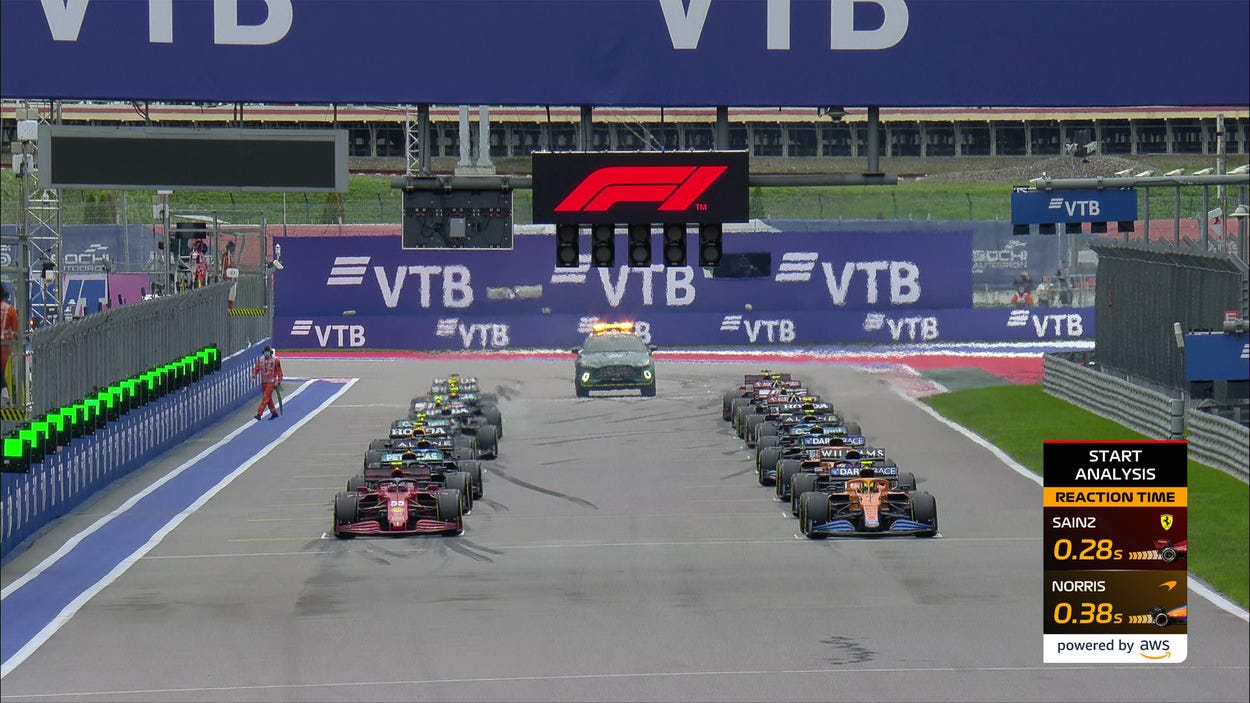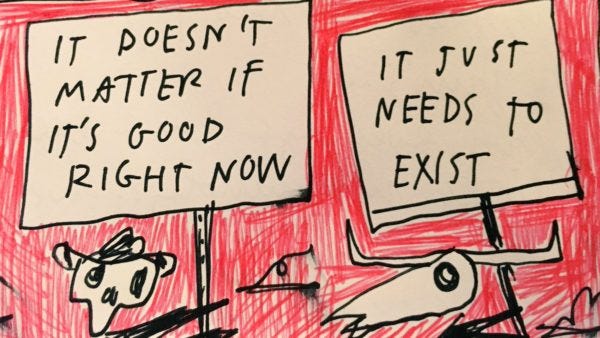Getting Shit Done at Startup Speed
A Smart Generalist's Guide
The next four editions of Silicon Valley Outsider are going to be awesome.
I’ll cover:
How to get shit done at startup speed (you are here)
How to build the operational machine behind a rocketship startup
How to raise money as a first-time founder
How to navigate the politics of the startup world
These will be the final four lessons in my Silicon Valley Startups series. We started with the basics (VC 101, Startups 101), and just finished the mid-level courses (How to Found a Silicon Valley Startup, How to Break Into Venture Capital, How to Join a Rocketship Startup, How to Choose).
The secrets I’m about to share were significantly harder for me to earn than those of previous lessons.
You can do a few of hours of research to figure out how VC Math works, but it took thousands of hours of my time pitching venture capitalists — and making that godforsaken drive from Berkeley to Palo Alto — to learn what worked and what didn’t as I raised funding as a first-time founder with zero professional network in Silicon Valley.
Similarly, learning how to be effective as a startup operator has been my principal focus for the better part four years. When I joined Astranis, we were 50 people with a scale model of a satellite that used a beach ball as a propellant tank; today, we’re over 300 people and have five real satellites launching on SpaceX rockets next year.
These lessons are going to be significantly spicier than usual, so I’ve decided to put them behind my subscriber paywall.
Without further ado, let’s get into it. Our topic for today: how to get shit done at startup speed.
Startups operate at blistering speed, as they must.
Startup life is a constant struggle for survival, and it’s a timed struggle. Startups spend money faster than they make it, so your job as a startup operator is to either 1) achieve a new milestone that allows you to raise more money, or 2) get to profitability. If you fail to do so, then you run out of money and fail.
Startups call the rate at which they spend money their “burn rate,” and the amount of time left before they run out of money their “runway.” Analogy being that you’re trying to build an air-worthy plane while hurtling towards a sheer cliff. If you succeed, you fly. If you don’t, you die.
As a result, startups are high-stress environments that demand that you get an immense amount of work done as quickly as possible.
I’ve worked (and, arguably, thrived) in such an environment for four years now, so I’ve learned what it takes to keep pace.
Here are my secrets to getting work done extremely quickly:
Your primary goal is to maximize output per unit of brainpower input.
Optimizing for speed isn’t free.
Choosing your projects is just as important as completing them.
You have to care.
It’s the little things.
In the sections that follow, we’ll dive into each one in detail.
🧠 Secret #1: Your primary goal is to maximize output per unit of brainpower.
Your brainpower is a finite resource. Each day only holds so many hours, and your brain can only churn through so much glucose until it runs out of steam.
In order to get shit done, you must make the fullest and best use of each minute of available brainpower.
Don’t waste any time before getting started.
As soon as you get assigned a task, start immediately. Even if you literally just create and save a blank document, or open a blank email draft — do it immediately. The first word is inevitably the hardest one to type. So, just type anything, and you’ll be able to take it much more easily from there.
Get started as soon as you can. Inevitably, you’ll hit a roadblock if you try to start before you have all the information you need, but it’s impossible to anticipate everything you’ll need before you get started. So, just start!
I’ve found that reaction time is just as important as top-end speed when trying to get shit done. I’ve worked hard to cultivate a learned fearlessness when getting started on tasks, and it has absolutely paid dividends. There’s no use being scared of the monster under your bed — far better to drop down immediately, even if it means taking a blind swing to start the fight.
Get things out of your brain as soon as possible.
Don’t rely on memorization. If you have a to-do, put it on your to-do list and eliminate it from your short-term memory. Take obsessive meeting notes, but only for the things that matter: decisions and action items. Send an agenda when you schedule a meeting so that everyone knows how to prepare and why it’s happening. As soon as you read an email, either reply immediately, archive it forever, or snooze it to be replied to later — don’t leave it in your inbox waiting to be re-read, or 1) you’ll have to triage it twice, and 2) sorting the clutter will steal your brainpower. The same goes for your desktop, your downloads folder, and your physical desk space. Keep your workspace, and your brain, clean.
Your short-term memory is perhaps the most finite mental resource of them all, and you’ll need all of it to be maximally effective in whatever primary task you’re trying to tackle.
Don’t waste your time on repetitive decisions.
Always sign off your emails the same way (just use “Best,”). The most extreme version of this piece of advice is the whole “wear the same clothes every day” thing, but don’t do that — it’s weird. You should think constantly about which of your repetitive decisions are inconsequential, however, and when in doubt, standardize.
“I do my best to line up a productive procrastination outlet, something that requires a completely different part of my brain”
Productively procrastinate.
Different tasks require different kinds of brainpower. After about an hour of writing, I’m exhausted. The words come slower and the ideas are less sharp. But being tired of writing doesn’t mean I’m tired of working, and “focus” on a daily level is overrated, so I try to always have a second task lined up to hop into when I’m exhausted of the first.
Call this productive procrastination. When you’d rather not do what you are supposed to do, what do you turn to? Twitter, ESPN, or the break room? Or another, orthogonal, but still productive task?
Don’t fully surrender to the cult of productivity — taking true mental breaks is important — but if you find your per-unit-of-brainpower output on a particular task waning, don’t hesitate to switch to something that will give you a higher return on your time.
And finally, segregate your optimization time from your “go go go” time. Once you’re started on a task, crush it. Don’t hesitate. It’s easy to second-guess whether you’re making the best use of your time, but — as we’ll discuss shortly — deciding what you want to do next is a separate action from just going and getting things done. Once you decide, just go!
💩 Secret #2: Optimizing for speed isn’t free.
If you want to get shit done, you’re inevitably going to make some shitty work product. And that’s okay.
The patron saint of shitty work is best-selling author Anne Lamott, whose essay “Shitty First Drafts” is a must-read:
Almost all good writing begins with terrible first efforts. You need to start somewhere. Start by getting something -- anything -- down on paper. A friend of mine says that the first draft is the down draft -- you just get it down. The second draft is the up draft -- you fix it up. You try to say what you have to say more accurately. And the third draft is the dental draft, where you check every tooth, to see if it's loose or cramped or decayed, or even, God help us, healthy.
The only difference between writing a book and operating at startup speed is that startups force you to turn in your shitty first drafts. It’s wild, and coming out of consulting, it felt reckless. Why would I let the CEO see anything that was less than my absolute best work?
Well, the short answer is that any first draft — whether shitty or polished — has a non-zero possibility of being totally off-the-mark. In the beginning, you’ll be completely wrong very often; even after years of working for the same boss as the same company, I’m still completely wrong maybe 10% of the time. That’s a non-negligible amount of time that I might waste trying to polish my turds! It’s much better to show my turds to the world with a caveat or two, and then refine them after I’ve received some course correction.
The moral: nothing is free. If you’re optimizing for speed, you’re not optimizing for initial quality. But that’s okay, and speed usually leads to higher-quality products in the end.
Aside: Optimizing for speed also means you’re not optimizing for team cohesion and camaraderie. It takes time to make sure everyone is aligned and bought in, so sometimes you’ll want to speed forward and ask for forgiveness later. Getting shit done — but be warned: once your shit gets done, you might have some wreckage to clean up behind you.
✅ Secret #3: Choosing your projects is just as important as completing them.
I have tried every to-do app and system under the sun. I tried Notion, I tried Roam Research, I tried Google Tasks, I tried Asana, I tried a Google doc, I tried running everything through email… I stuck with Todoist for the longest of all of these apps, and have close friends who swear by it.
But nothing has worked half as well as my current solution: a dumb, unformatted notepad file on my Desktop.
I call it the List.
The rules of “The List” are simple:
If I need to do something that will take less than ten minutes, I do it immediately and it is never written down on The List
If I need to do something that will take longer than ten minutes, it gets a single line on The List
Tasks that need to get done this week are pulled up to the top of The List
As new tasks emerge that are more important than weekly tasks, I create more and more categories at higher and higher priority levels (“URGENT!” → “DO IT NOW” → “AAAAHHHHHH”)
At the end of the week, everything that was not made into a priority gets dumped into a “backlog” of actions that, honestly, will never get completed
(Two caveats:
this system is loosely based on GTD
urgent != important; often I will treat long-term planning tasks as my productive procrastination outlet.)
The brutal reality of The List is that you will almost never have time to do everything — and trying to do go back and do things that were not the #1 priority is a fool’s errand.
Startups are interrupt-driven, and there’s always a bigger interruption lurking. Trying to stick to a strategy forged before you knew about the fires of the week is foolish; the primary advantage of the startup over the big company is that a startup can shift its focus quickly, which must be realized by each employee if it is to be realized by the startup itself.
The only other secret to using The List effectively is this: you must also set aside time to think about what tasks are not yet on The List, or anyone else’s list at your company.
Assume, quickly, that you are choosing between a list of five tasks. You’re amazing at the first, good at the second, and so on. Which task should you do?
Of course, this is a trick question: it all depends on who else is on your team, and what they’re good at. You need to focus your time on the tasks that the rest of the company is the worst at doing well.
Just like in international trade, comparative advantage matters more than absolute advantage.
Even if you’re better than everyone at producing PowerPoint decks, if nobody else knows how to make a great financial model, you’re going to work on the model even if you’re not that great at it.
This also has another secret lying in wait: developing strengths where your organization has weaknesses is a pro move. But that’s a topic for another day.
🎻 Secret #4: You have to care.
The best way to get shit done is to try very hard. And the best way to try very hard is to genuinely care about the work you’re doing.
As Paul Graham, Silicon Valley whisperer, wrote in one post:
Bill Gates, for example, was among the smartest people in business in his era, but he was also among the hardest working. "I never took a day off in my twenties," he said. "Not one." It was similar with Lionel Messi. He had great natural ability, but when his youth coaches talk about him, what they remember is not his talent but his dedication and his desire to win.
And in another:
There are people who collect old bus tickets. Like many collectors, they have an obsessive interest in the minutiae of what they collect. They can keep track of distinctions between different types of bus tickets that would be hard for the rest of us to remember. Because we don't care enough. What's the point of spending so much time thinking about old bus tickets?
…there is no point. A bus ticket collector's love is disinterested. They're not doing it to impress us or to make themselves rich, but for its own sake.
When you look at the lives of people who've done great work, you see a consistent pattern. They often begin with a bus ticket collector's obsessive interest in something that would have seemed pointless to most of their contemporaries.
Who’s going to work harder: someone who grits their teeth and prays for the weekend, or a peaceful warrior who finds it hard to put down work on a Friday night?
It’s hard to work hard if you don’t care. So the secret here: find a career that you care about. It’ll make it easier to get shit done; you’ll desperately want to do so.
Secret #5: It’s the little things.
Beyond the big tips above, there are innumerable small things that I’ve learned to shave off seconds from tasks here and there. Not all of them were cost-effective for me to learn…
…but now that I know them, you can benefit at a fraction of the cost:
Just call people. Whenever in doubt, pick up the phone. You’ll convey information way faster speaking than typing, and you’d be amazed how much more information outside parties are comfortable revealing when they say it, versus when they type it into the permanent record.
Consolidate your meetings. This works not because of “deep work” mumbo jumbo, but because meetings normally take a few minutes of ramping up and cooling down, and stacking them on top of each other eliminates that wasted time.
Don’t waste your time organizing your emails into categories. Search tools are good enough to help you find anything you want to recall later. I just have one email category — stars, which are emails that I expect I’ll want to remember at the end of my career (e.g., sending my yearly goals to my manager; the first time we sold a satellite). After four years at Astranis, I have categorized exactly 10 emails.
Work earlier or later than normal hours. Your work at a startup will be interrupt driven; if you actually need to do something, you should expect to be able to crank on it before 8am or after 6pm.
When one of your tasks is “learn about [huge topic]”, alternate breadth and depth. Create a long list of words that you need to understand, find out what they all mean, then burrow down into the most important one or two words the next time you ask an expert for help.
Never be afraid to ask experts for help. They love when people are genuinely interested in their work, especially if they’re folks who are normally out of the public eye. (e.g., it was startlingly easy to talk to the world’s foremost elevator safety expert when I wrote this piece)
Accumulate tech shortcuts. E.g., when trying to find a primary source like a textbook, add “filetype:pdf” to your search in Google.
Exercise. If you don’t take care of your body, you’re not taking care of your brain. When I wrote my first book, I was working 60-hour consulting weeks and training for a marathon at the same time. The marathon training, amazingly, helped me stay energetic enough to write after a long day of work.
And that’s it for now. I’ll keep adding to this list as I think of more things.
In the meantime — enjoy getting shit done!






